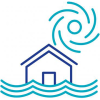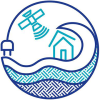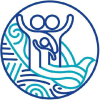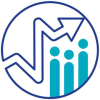Recommendations » Overall recommendations:
2. Enable supplementary data to be collected and used between PILNA cycles
The second main recommendation is for stakeholders to enable supplementary data to be collected and used between PILNA cycles.
PILNA is a large-scale assessment that generates large amounts of data, but infrequently. In some areas, stakeholders may need to respond quickly, so they require more frequent data collection.
A key example is student performance in the classroom, requiring formative assessment practices. More regular monitoring of student performance in literacy and numeracy, as well as of student and teacher experiences and environments, can enable issues to be identified promptly and action be taken.
Some general recommendations to achieve this are provided below.
- Use PILNA 2021 findings to identify areas in need of monitoring or evaluation at regional, national and local levels. PILNA findings may highlight areas, such as student underperformance, that require more evidence to understand or to justify interventions at a local level. Ministries of education should collaborate with SPC-EQAP and other partners to identify these and create strategies to monitor and evaluate these outcomes over time.
- Perform necessary monitoring and evaluation activities and use insights to inform and implement changes where needed. Ministries of education should collaborate with local education stakeholders to perform monitoring and evaluation activities in areas identified by local stakeholders (see 2.1). Schools and education providers might also implement internal monitoring and evaluation activities in areas such as student outcomes or staff well-being. These can be used to inform interventions or to better identify changes over time as a result of targeted interventions.
- Support and enable formative assessment approaches that monitor and provide ongoing feedback for student performance. Formative assessment approaches should be supported at all levels. These enable teachers and other educators to closely monitor student performance over time, give regular feedback on performance, and provide targeted teaching strategies. PILNA 2021 highlighted a key need for formative assessment approaches to be strengthened or embedded in education systems and in classrooms. Ministries of education and school leaders should support these approaches, and teachers should familiarise themselves with these approaches and follow them.








